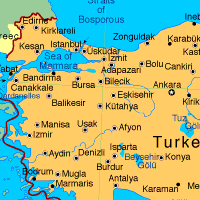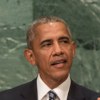![]()
By Barry Rubin
Shanghai, China
There is a remarkable amount of interest in China about Israel and Jews, as I discovered during a trip to China sponsored by SIGNAL, the Sino-Israel Global Network and Academic Leadership.
The most obvious reason is that the Chinese — one important official called it the “little superpower — perceive that Israel in particular and the Jewish people in general have been success stories. Ten or twenty years ago this would have been less unique in the world. But now, sad to say, it stands out more because the United States and Europe, perhaps only temporarily, are not working very well.
Of course, on a strategic level, Israel and China have some differing interests but these are less important than they may appear to be. China wants to have commerce with everyone, including Iran, and is protecting Syria in the international framework.
Yet China has significantly reduced energy imports from Iran in order to show support for the international efforts against Iran’s nuclear drive and clear signals have been sent to Tehran. Clearly, Chinese interests don’t benefit from Tehran having a nuclear arsenal and being a destabilizing force in the region. As for Syria, Israel’s position on whether the current regime should be overthrown has not been unambiguous. The Chinese argue that a radical Islamist government worse than the current one in Damascus may well come to power. That is not clear but the concern is a reasonable one, especially because U.S. policy is supporting the Islamists in Syria.
Israel and China also have many parallel interests, among them the desire for stability in the Middle East and the hope that revolutionary Islamism doesn’t spread. And China’s policy of dealing with all other countries has another side, since it will not let its relationships with Israel be interfered with by any possible Arab or Iranian demands. Indeed, if China decides to become the main customer for Israeli natural gas and oil exports, the Jerusalem-Beijing relationship may be Israel’s most important link, second only to the one with the United States.
Another factor which should not be underestimated is the lack of Chinese prejudice toward Jews and prejudgment against Israel that has become such a huge obstacle for Israel’s dealing with the West.
Most important of all, is China’s emphasis on economic and social development, the priority on raising living standards and achieving national success rather than such typically regrettable goals of expanding their territory, getting revenge for past grievances, and preferring pragmatic solutions to imposing ideological rigidity on problems.
There is a huge amount of cooperation, far more than many people realize, on joint projects. While hi-technology is the most obvious area of such activity, there are many others as well. Energy issues are equally paramount. China shares with Israel a great interest in finding alternative energy sources, not so much due to environmental considerations but to financial and security ones. Some impressive ideas and pilot programs are underway that seem more imaginative and likely to succeed than what I’ve seen in the American debate.
Several Israel and Jewish programs have opened in different universities; students are studying Hebrew and other relevant topics; Chinese bookstores contain multiple volumes about Jewish and Israeli achievements without — unlike some other Asian countries — exhibiting antisemitism. Obviously, those interested in these things is proportionately tiny in the world’s most populous country. But this sector has reached a size significant enough to sustain itself and to influence the broader society.
On a humorous level, when a Chinese colleague told me, whether accurately or otherwise, that his people’s culture entailed always being optimistic and believing in a better future, I responded that the Israeli and Jewish characteristic was to be pessimistic and then make jokes about it.
Seriously, though, there are a number of important points — certainly seen as such by those Chinese who think about it — in common. Among the points that figure on this list are a mutual experience of a long history of civilization, wide dispersion, emphasis on the importance of education, readiness to work hard, focus on family, and suffering of persecution. If contemporary Jews and Israelis have lost some of these values, perhaps renewing them might learn something from China.
Of course, we can have criticisms of contemporary Chinese politics and policies but it is also important not to cling to outdated notions. I certainly don’t claim to be an expert on China — though I once thought seriously of pursuing that career path — but my visits to the country go back to 1974, when the word totalitarian could accurately have been applied.
But China is no longer the country of the Cultural Revolution and the time of great repression. It has turned toward capitalism and opened up a much wider margin of freedom. The real power of personal initiative has been unleashed and the results have been awesome. I doubt whether any country has made such rapid progress in social and economic development so fast in history.
But here’s an equally important point. While these changes are theoretically reversible, I — and a lot of Chinese people — don’t think this is going to happen. A course seems set in which freedoms will continue to expand in the decades to come. Equally, there seems to be a genuine appreciation — as there has been in the West but there certainly hasn’t been in the Middle East — that the old strategies of war to seize territory and empire-building abroad are obsolete.
An Egyptian friend visited China a few years ago and asked a counterpart, “China has been the victim of so much oppression and imperialism. How do you deal with that?”
The response was, “We got over it.” The Egyptian was astonished, but as a liberal Arab he realized that his own society would be far better off if it eschewed the politics of revenge, bitter hatred, and the angry assertion of superiority on the basis of an inferiority complex. Of course, the Arabic-speaking world has unfortunately been moving in the opposite direction with predictably terrible results. In contrast, Israel and China focus on positive national construction, raising living standards, and seeking peace.
What’s important for Israel, then, is to work with this process of events in China rather than to underestimate it isn’t happening or focus only on a negative side that is becoming smaller over time. Given Europe’s regrettable decline and hostility — which should not be overestimated but must be seriously evaluated — looking east seems the sensible global strategy for Israel in the coming decades.
Barry Rubin is director of the Global Research in International Affairs (GLORIA) Center and editor of the Middle East Review of International Affairs (MERIA) Journal. His book, “Israel: An Introduction“, has just been published by Yale University Press. Other recent books include “The Israel-Arab Reader” (seventh edition), “The Long War for Freedom: The Arab Struggle for Democracy in the Middle East” (Wiley), and “The Truth About Syria” (Palgrave-Macmillan). The website of the GLORIA Center and of his blog, Rubin Reports. His original articles are published at PJMedia.



 RSS
RSS











Latest Comments
Hello Mike, Thank you for your positive feedback to the article. I felt there wasn’t too much critical analysis of ...
Thanks for this considered and well constructed article. A follow up article on the manner in which the editorial contro...
THE CLUELESSNESS OF CLAIMING THAT OBAMA'S MIDDLE EAST POLICIES WERE A FAILURE CANNOT BE FURTHER FROM THE TRUTH, WHAT THE...
As long as Obama is the president of the usa do not trust the us government......
Thank you for an good read....